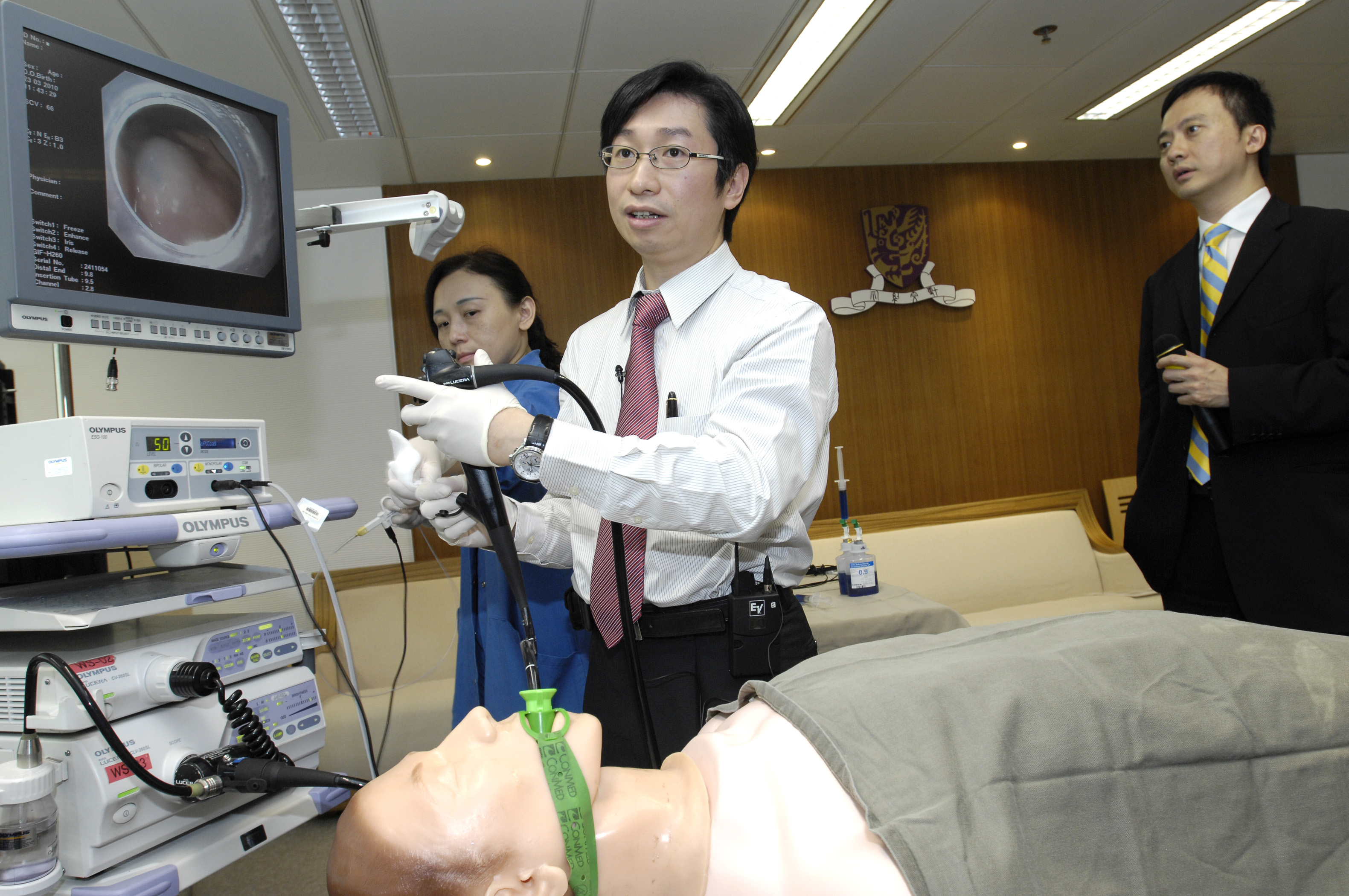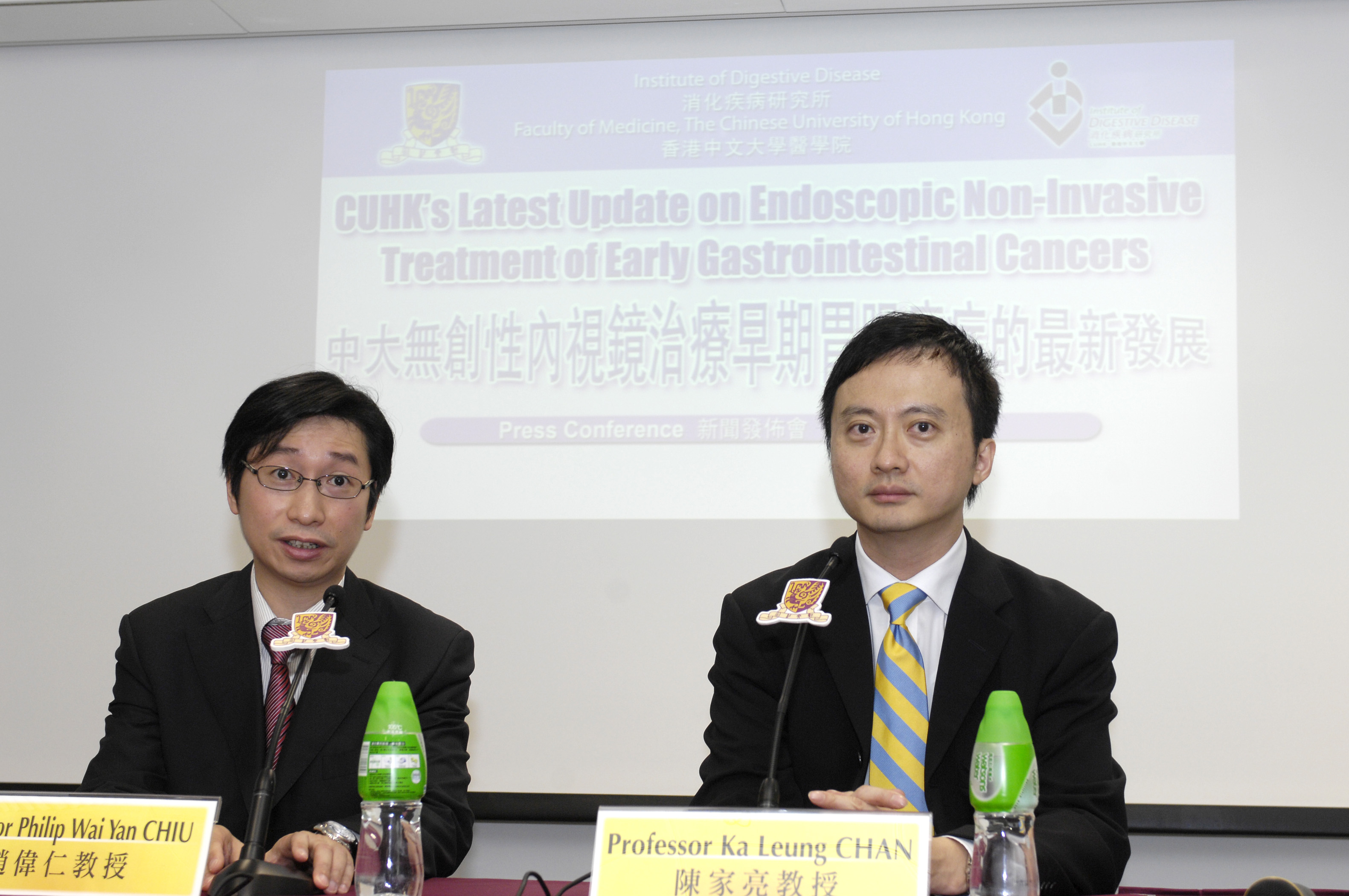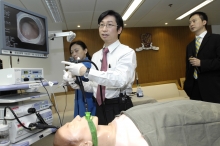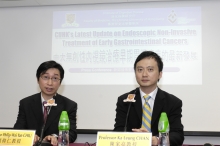CUHK
News Centre
CUHK’s Latest Update on Endoscopic Non-invasive Treatment of Early Gastrointestinal Cancers
Gastrointestinal (GI) cancers are the most commonly occurring cancers worldwide. According to WHO cancer statistics, gastric and colorectal cancers are respectively the second and third most common cause of cancer related death, which amount to 1,500,000 deaths per year globally. While advanced GI cancers are difficult to cure, early GI cancers carry a significantly better prognosis. The 5-year survival for GI cancers at an early stage is more than 90% worldwide. In the past, detection of early GI cancers by endoscopy was notoriously difficult. With the advancement in technology including narrow band imaging, autofluorescence imaging and the commencement of screening colonoscopy for colorectal cancers, early GI cancers are increasingly recognized at the combined endoscopy centre, Institute of Digestive Disease at The Chinese University of Hong Kong (CUHK).
Conventional curative treatment for GI cancers is surgery, which involves resection and anastomosis, and carries significant risk of morbidity and mortality. CUHK was the first to introduce the technique of Endoscopic Submucosal Dissection (ESD) to Hong Kong for the treatment of early gastric cancer in 2004. Comparing to conventional surgery, ESD is less invasive because the endoscopic procedure does not have an open wound. Thus, postoperative pain will be substantially reduced. Furthermore, ESD renders the patient a better quality of life as the organ struck by the cancer is not resected. ESD can achieve a curative resection for early GI cancers limited to mucosa with wide margins.
Over the past 5 years, this technique has been applied to treat early stage cancers of the whole GI tract including pharynx, esophagus, stomach, duodenum as well as colon and rectum. The number of cases treated by ESD increased from less than 10 cases in 2004 to more than 50 cases in 2009.
Currently, more than 200 patients have received treatment of their early GI cancers by ESD with 196 patients successfully treated. The primary success rate of ESD is 95%. These included 101 patients (51.5%) with early neoplasia or submucosal tumors in the stomach; 33 (16.8%) with early neoplasia in the esophagus; 4 (2%) in the duodenum; 54 (27.6%) in the colon and rectum and 4 (2%) in the pharynx. The average operating time of ESD was only 85 minutes. Most of the ESD for stomach and esophagus were performed under general anesthesia, while those performed in the colon were under intravenous conscious sedation. The average size of specimen resected was 17.8cm2, with the largest being 52cm2. The average hospital stay was 3 days and there was no perioperative mortality.
In conclusion, ESD is a novel, minimally-invasive and curative treatment for early GI cancers. The Institute of Digestive Disease at CUHK has applied ESD to treat 200 cancers occurring in all sites of GI tract with a promising success rate. The above results were published in the journals Gastrointestinal Endoscopy, Endoscopy and Surgical Endoscopy.
Professor Philip Wai Yan CHIU, Associate Professor, Division of Upper Gastrointestinal Surgery, Department of Surgery, CUHK demonstrates the technique of Endoscopic Submucosal Dissection (ESD)







